We harness the power of science to advance conservation of the most important species and places. Scientific publications, computer-based tools, and data sets generated by WWF strengthen the integrity of conservation efforts worldwide. WWF’s seminar and symposia series foster scientific discourse and facilitate the cross-fertilization of ideas across sectors. Other conservation organizations, government agencies, and academic researchers regularly adopt WWF’s innovations.
Connecting Scientists
WWF employs a wealth of scientific expertise in its work around the world. Sharing information among WWF’s hundreds of dispersed scientists is critical to accelerating conservation. The WWF Conservation Science Network connects, supports and grows this community by providing access to the latest information and techniques, coordinating training and providing opportunities for collaboration.
WWF scientists use new technology to answer key conservation questions. Wireless internet, global telecommunication systems, cloud computing, online mapping, and smart phones help us approach scientific research in new ways. Our analyses enable decision makers and field practitioners to quickly incorporate the best information into their work.
WWF scientists are leading an effort to determine which conservation strategies are working well, which need improving, and, most importantly, why. They are doing this through “impact evaluation,” a new application of the scientific method that draws upon best practices in the medical and education sectors.
The Kathryn Fuller Science for Nature Fund supports and harnesses the most promising conservation science research and puts it into practice. Named in honor of the former president and CEO of WWF-US, the fund supports an annual Science for Nature Symposium featuring global leaders in science, policy, and conservation. Additionally, a regular seminar series provides a regular forum for the conservation community to learn, discuss, and network.
WWF scientists and colleagues research climate change impacts and analyze data to find ways to build resilience for vulnerable people, species, and their habitats. We strive to provide practical solutions for conserving biodiversity by developing a new paradigm of "climate-smart" conservation that focuses on best practices to reduce vulnerability and enhance resilience by putting nature at the center of sustainable development.
Natural ecosystems support livelihoods and economies in countless ways: they store carbon to slow climate change, purify and regulate water supplies, pollinate crops, and provide food and medicine. WWF scientists quantify these benefits and map their sources so the value of these ecosystem services are included in policy and decisions.
WWF knows that investing in training and education is critical for biodiversity conservation. That's why for nearly two decades the Russell E. Train Education for Nature Program (EFN) has been providing financial support to proven and potential conservation leaders in Africa, Asia, and Latin America to gain the skills and knowledge they needed to address the conservation challenges in their home countries. EFN supports conservationists to pursue graduate studies, attend short-term training courses, and train local communities in WWF priority places.
WWF scientists are working to transform how we plan, implement and evaluate our programs so they can better adapt to the changing needs of our complex world. Through guiding principles, practical tools, and real-world stories, we strive to make systems thinking practical and accessible for those seeking to create inclusive, impactful, and adaptive solutions to today's toughest problems.
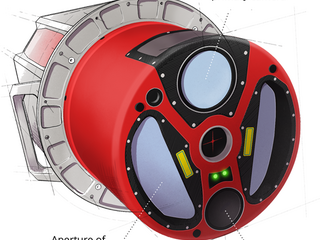
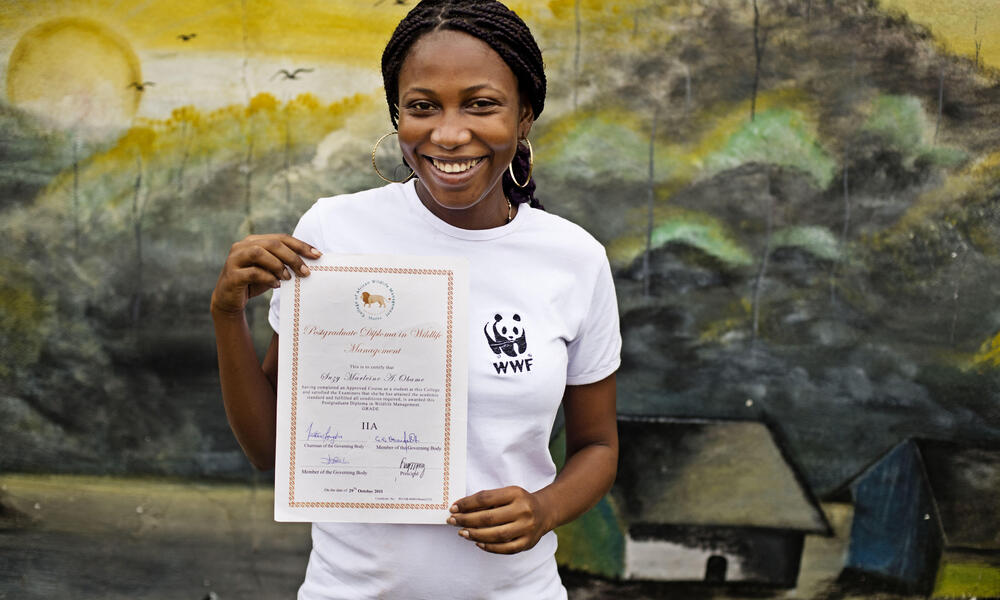
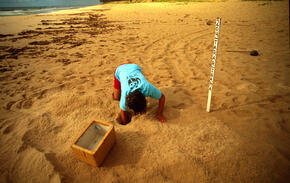
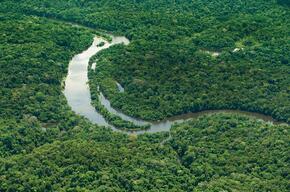

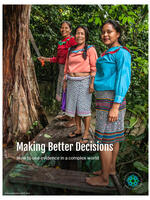
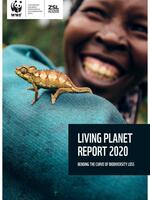
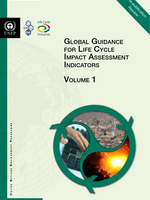
 Colby Loucks
Vice President, Wildlife Conservation Program
Colby Loucks
Vice President, Wildlife Conservation Program
 Robin Naidoo
Senior Conservation Scientist and Lead Wildlife Scientist
Robin Naidoo
Senior Conservation Scientist and Lead Wildlife Scientist
 Michele Thieme
Deputy Director, Freshwater
Michele Thieme
Deputy Director, Freshwater
 Rachel Kramer
Deputy Chief of Party, Targeting Natural Resource Corruption
Rachel Kramer
Deputy Chief of Party, Targeting Natural Resource Corruption
 Nilanga Jayasinghe
Manager, Wildlife Conservation
Nilanga Jayasinghe
Manager, Wildlife Conservation
 Ryan Bartlett
Director, Climate Risk Management & Resilience
Ryan Bartlett
Director, Climate Risk Management & Resilience
 Nikhil Advani
Director, Climate, Communities and Wildlife
Nikhil Advani
Director, Climate, Communities and Wildlife
 Gabby Ahmadia
Director, Marine Conservation Science, Oceans
Gabby Ahmadia
Director, Marine Conservation Science, Oceans
 Jeff Opperman
Global Freshwater Lead Scientist, Global Science
Jeff Opperman
Global Freshwater Lead Scientist, Global Science
 Dave Thau
Global Data and Technology Lead Scientist, Global Science
Dave Thau
Global Data and Technology Lead Scientist, Global Science
 Christa Anderson
Director of Climate Science and Carbon Metrics, Climate Change
Christa Anderson
Director of Climate Science and Carbon Metrics, Climate Change
 Nasser Olwero
Director of Information Science, Global Science
Nasser Olwero
Director of Information Science, Global Science
 Pablo Pacheco
Global Forests Lead Scientist, Global Science
Pablo Pacheco
Global Forests Lead Scientist, Global Science
 Kimberley Marchant
Senior Director of Strategic Engagements, Global Science
Kimberley Marchant
Senior Director of Strategic Engagements, Global Science
 Alison Cross
Director, Fishery Sustainability
Alison Cross
Director, Fishery Sustainability
 Brent Loken
Global Food Lead Scientist, Global Science
Brent Loken
Global Food Lead Scientist, Global Science
 Nelly Kadagi
Director of Conservation Leadership and the Education for Nature Program, Global Science
Nelly Kadagi
Director of Conservation Leadership and the Education for Nature Program, Global Science